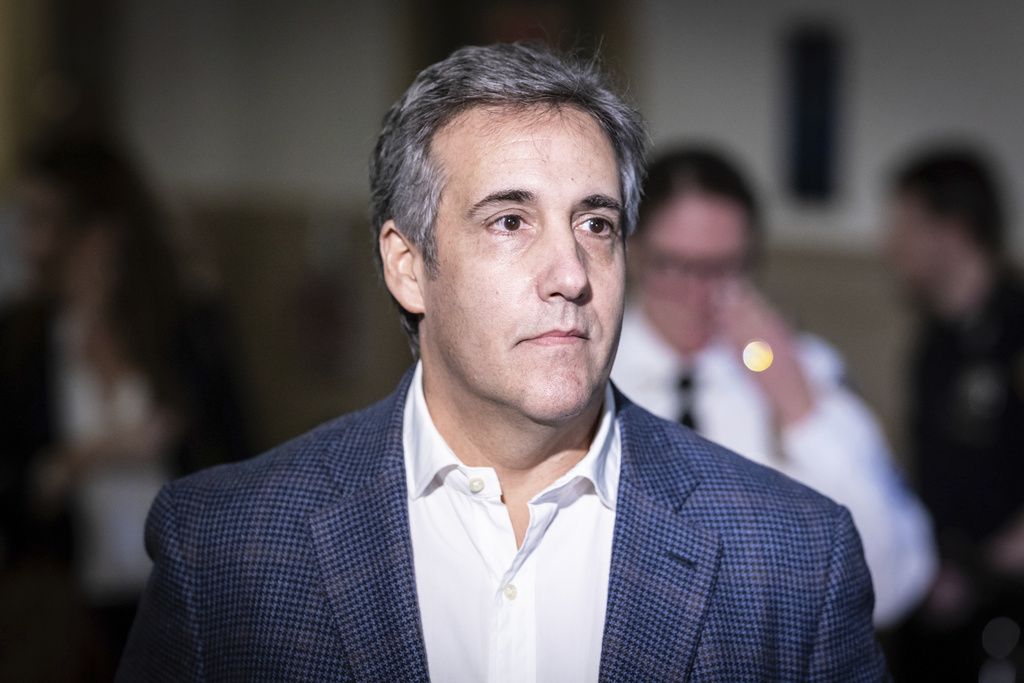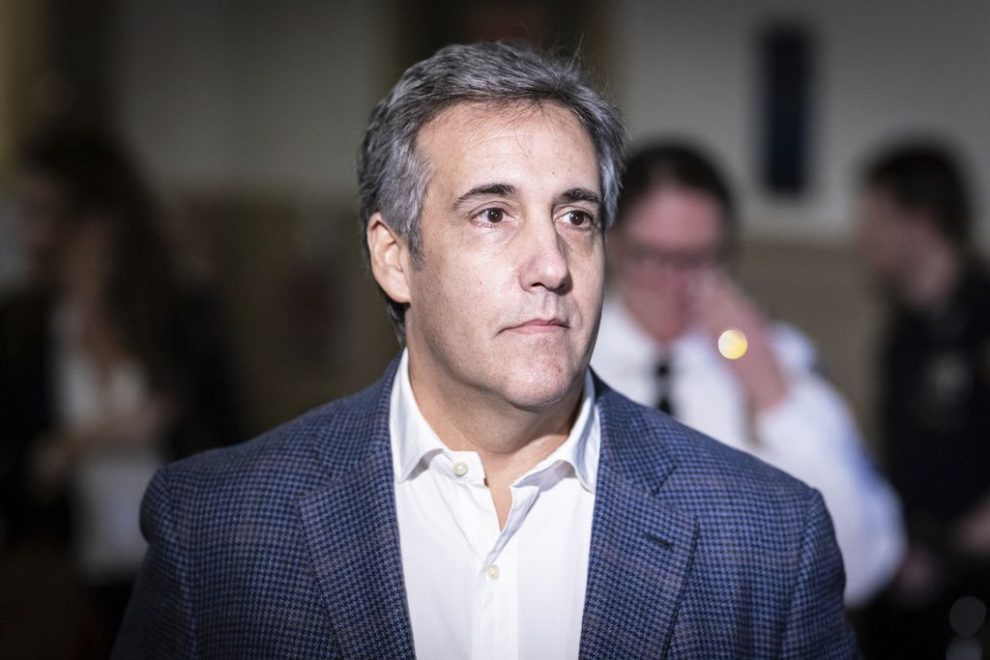Former President Donald Trump and the Biden administration are fighting Michael Cohen’s efforts in the Supreme Court to seek damages for his imprisonment in 2020, marking an unusual instance of Trump and his successor siding with one another in a legal battle.
Trump and the Biden Department of Justice both argued in separate court filings on Friday that the high court should reject Cohen’s claim that he was improperly detained for being critical of Trump, and, therefore, entitled to compensation.
The odd state of agreement between the two parties comes after Cohen, Trump’s former personal lawyer, asked the Supreme Court this year if he could sue Trump and the DOJ for damages.
The lawsuit stems from a time when Cohen was serving out a three-year prison sentence for campaign finance violations, tax evasion, and false statements.
In 2020, after spending about a year behind bars, Cohen became eligible for home confinement due to new COVID-19 policies. However, according to Cohen, the Trump DOJ sought terms of his prison release that included atypical speech restrictions.
Cohen, who has built a brand around being critical of and hostile toward Trump, was at the time preparing to release a book titled Disloyal: The True Story of Michael Cohen, Former Personal Attorney to President Donald J. Trump.

Cohen opposed the speech restrictions, which would delay his book release, leading to the Bureau of Prisons placing him in solitary confinement after he had already been out on home confinement for weeks. Cohen stayed in solitary confinement for about two weeks in July 2020 before a judge granted Cohen an emergency application for his release. A judge agreed with Cohen at the time that Trump had retaliated against him, but lower courts have uniformly declined to award Cohen damages over it.
Cohen’s attorney described his client’s experience in solitary confinement as traumatic, writing in the petition to the Supreme Court that Cohen “spent roughly twenty-three-and-a-half hours a day alone in a cell with poor ventilation, no air conditioning, and a broken window.”
“Cohen’s health suffered, with his blood pressure becoming dangerously high, resulting in severe headaches, shortness of breath, and anxiety,” Cohen’s attorney wrote. “While in solitary confinement, Cohen was unable to complete his book or make any public statements.”
Trump attorney Alina Habba responded on Trump’s behalf, and Biden-appointed Solicitor General Elizabeth Prelogar responded on the Trump DOJ’s behalf.
Habba’s arguments were far broader than Prelogar’s and heavily incorporated the Supreme Court’s recent landmark ruling on presidential immunity.
“Permitting a [damages claim] to proceed against the head of the Executive Branch, for acts allegedly performed within his official capacity as President, would undoubtedly raise grave separation-of-powers concerns,” Habba wrote, citing the immunity ruling.
Prelogar argued that Cohen was improperly claiming he was entitled to damages under the wrong constitutional amendment.
“This case would also be a poor vehicle for considering petitioner’s arguments because his allegations of retaliation for speech fit more naturally under the First rather than the Fourth Amendment, and the Court has already declined to extend [damages eligibility] to First Amendment retaliation claims,” Prelogar wrote. “The petition for a writ of certiorari should be denied.”
CLICK HERE TO READ MORE FROM THE WASHINGTON EXAMINER
Cohen’s attorney argued that the case had serious implications for presidential power.
“Thus, as it stands, this case represents the principle that presidents and their subordinates can lock away critics of the executive without consequence,” the attorney wrote.
























